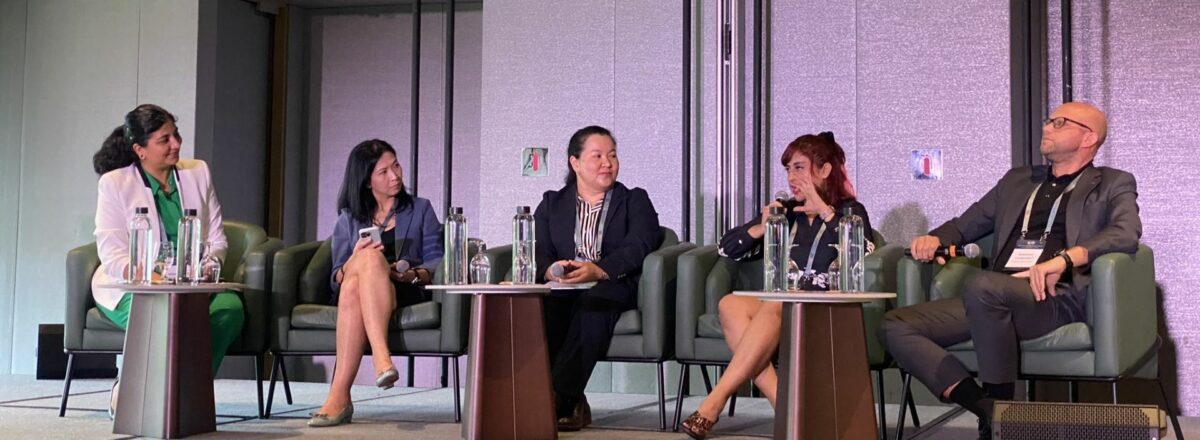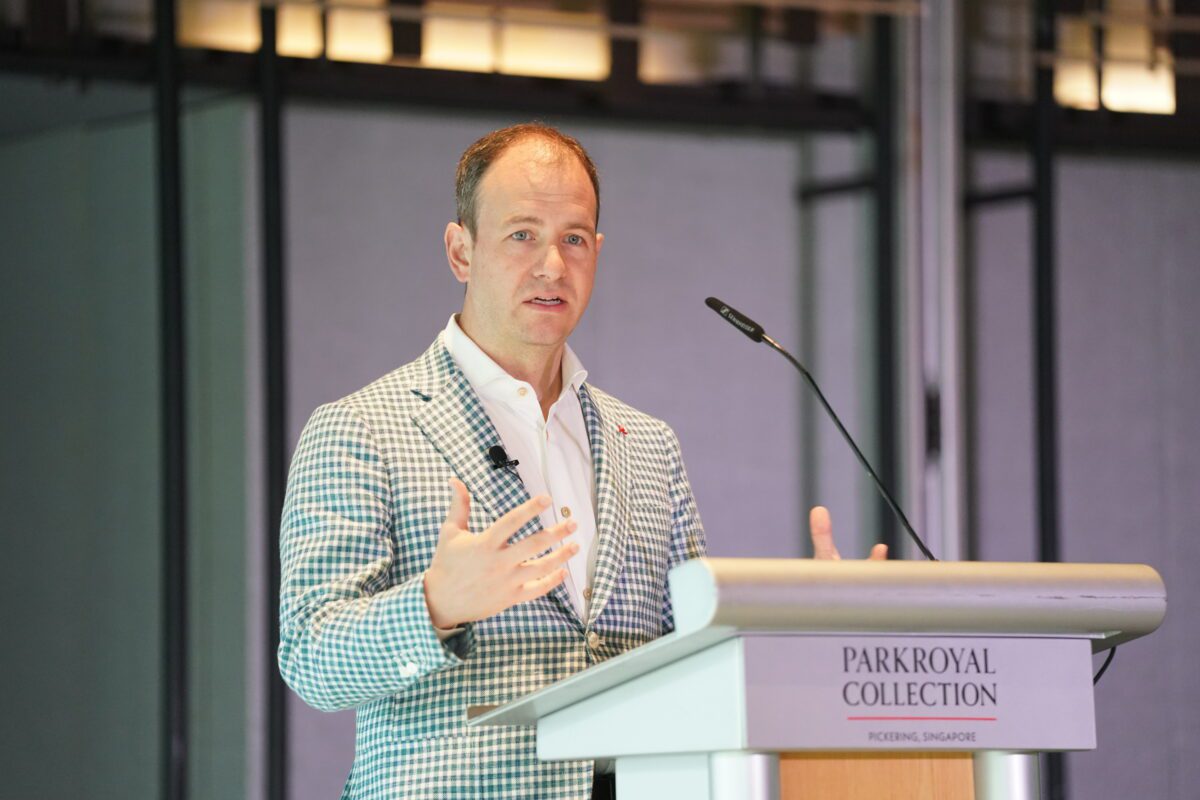Investment at scale in nature-based solutions with strong environmental, economic and social outcomes will support countries’ achievement of the goals in both the Paris Agreement and the Kunming-Montreal Biodiversity Protocol Asia Pacific Lead of the Nature Conservancy, Will McGoldrick told attendees at the Carbon Market Institute’s 2nd Carbon Market & Investor Forum.
Delivering a keynote speech titled “Nature-based Solutions: What ‘Good’ Looks Like, and Why it Matters”, Mr. McGoldrick reiterated the importance of international coalitions in delivering outcomes that are ultimately nature, climate and community positive. Commenting on the link between the carbon market and nature funding, McGoldrick called upon corporates not to be hesitant when investing in carbon projects. “Don’t let the negative media attention weaken resolve to change that economic calculus when it comes to nature. I encourage you stay focused on the immense opportunity we have in front of us and what means for livelihoods throughout Asia Pacific. To walk away from the opportunity is to commit to business as usual and that doesn’t bode well for any of us.”
Noting the linkages between the biodiversity and climate “twin crises,” McGoldrick called for corporates and governments alike to increase their investment in high integrity nature-based solutions, noting that there is no excuse not to undertake due diligence. “If you are downstream in the carbon market, I think you can also play a crucial role by being choosy. Purchasing high-quality carbon credits, and signalling the value of these projects by paying a higher price, will help create the needed incentive to build the pipeline of high integrity projects in Asia Pacific.” Mr. McGoldrick said.
In a plenary session following the event’s Nature Keynote, panellists from a diverse range of background convened to discuss how corporates and governments alike can begin implementing nature positive trends in their reporting and supply chains. Of particular focus for the panel discussion: the role of market-based mechanisms in supporting the widespread adoption of nature positive business practices and policies.
Speaking from the context of Australia, where close to 80% of all carbon projects are land-based, Chief Science Officer of GreenCollar, Jenny Sinclair commented that “Scaling nature-based solutions in the region, it’s not just an environmental imperative, but it’s an economic strategy to strengthen investor confidence in the market.”
Akash Verma, Postdoctoral Research Fellow at the National University of Singapore’s Centre for Nature-Based Climate Solution commented on technology improvements in data collection in recent years, but equally on the challenges of harmonising different data sources and ensuring that the data itself is accessible. “The technology is there. We’ve just got to figure out how to use it in a repeatable manner, and to process the data” Mr. Verma said.
While tools are emerging to support corporate engagement with nature positive markets, business literacy is still at a modest level across the Asia Pacific region. Asia Lead with the Business for Nature coalition Pallavi Kalita highlighted that for companies joining the coalition, there is a synergy between the biodiversity crisis, its solutions and business decisions. Ms Kalita commented that “Let’s admit that nature is indeed a complex problem, but equally it’s part of the nature of businesses to address complex problems. This is an opportunity for businesses and finance institutions to be part of the solution, and no longer part of the problem.”
Meanwhile, Investment Director at GenZero Ling Min Hoon affirmed the points raised by her fellow panellists, noting that private sector investment decisions are increasingly driven by anticipated nature impacts, but equally that firm policy signals are needed to support those decisions. “We need a viable market mechanism to drive private sector players to drive and mobilise finance into natures, and to establish an explicit cost on the action of nature destruction” Ms. Hoon said.
Partner at Bain & Co Singapore, Dale Hardcastle reiterated Ms. Min Hoon’s comment on growing awareness in the private sector highlighting the importance of data transparency and accessibility in informing corporate investment decisions. Mr. Hardcastle commented that “Companies who are prepared to invest and participate in the market are looking for assurance of quality and integrity.”
About the Forum
The Singapore Carbon Market & Investor Forum is the Asia Pacific Region’s premier decarbonisation and market-solutions focused event. In its inaugural year, the Forum brought together over 300 senior delegates, with a mix of government and private sector representatives present. The Forum brings together actors from across the broader Asia Pacific Region, with an emphasis on knowledge sharing for capacity building. The high profile of speakers and delegates continues to attest to the importance of fostering international linkages to support a net zero trajectory.
The full event program is accessible here.
About the Carbon Market Institute
CMI is an independent member-based institute that promotes best practice in market-based solutions and decarbonisation investment to help limit warming to 1.5ºC. CMI’s around 150 strong membership includes organisations from across the economy, in Australia and the Asia Pacific region. CMI also administers the Australian Carbon Industry Code of Conduct, which was established in 2018 to promote and steward consumer protection and market integrity. The CMI Board updates CMI’s Policy Positions annually, which draw on practical insights from—but are ultimately independent of—members.



